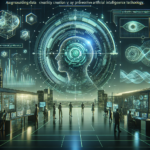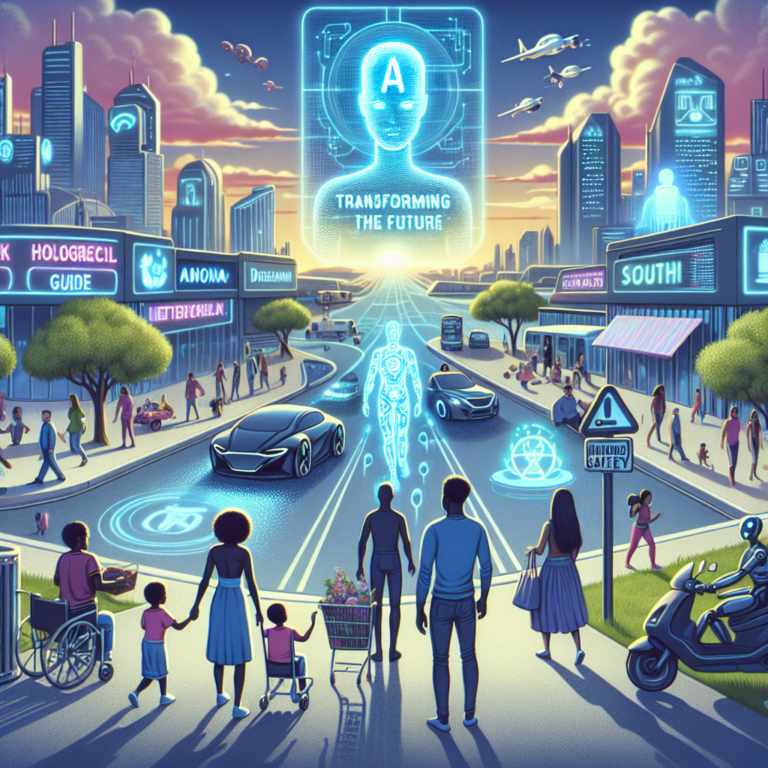Welcome to the latest edition of TechCrunch’s AI newsletter! In this week’s exploration of artificial intelligence, we dive into a fascinating new study that sheds light on the potential risks associated with generative AI. While some might believe these technologies pose an imminent threat to humanity, the reality is far less apocalyptic. Here’s what you need to know! 📊
Research Overview
Recently, researchers from the University of Bath and the University of Darmstadt conducted an intriguing investigation into the capabilities of generative AI models like Meta’s Llama family. Their findings suggest that these technologies cannot independently learn or develop new skills without explicit instructions. This study was presented at the Association for Computational Linguistics’ annual conference.
The team conducted thousands of experiments to evaluate how well these models could tackle tasks they had never encountered before, such as responding to questions on topics outside their training data. While the models displayed an ability to follow instructions superficially, they were not able to master new skills autonomously.
Key Insights from the Study
According to Harish Tayyar Madabushi, a computer scientist at the University of Bath and co-author of the study, the prevailing concerns about AI models going rogue and performing dangerous, innovative acts are unfounded. Madabushi noted, “The fear that a model will go away and do something completely unexpected, innovative and potentially dangerous is not valid.”
The researchers highlighted that the exaggerated fear surrounding generative AI is diverting attention from real issues that require focus as these technologies continue to evolve. Here are some vital considerations from the study:
- The notion that generative AI could automatically learn independently is overstated.
- Business and policymakers should pay attention to genuine problems associated with AI rather than hypothetical existential threats.
- Exaggerated narratives might hinder the development and adoption of beneficial AI technologies.
Limitations and Broader Perspectives
While this study offers significant insights, it is essential to acknowledge its limitations. The research did not evaluate the most advanced models developed by companies like OpenAI and Anthropic. Additionally, benchmarking AI capabilities can often be somewhat imprecise.
This research extends the ongoing dialogue around the safety of generative AI. Experts like AI ethicist Alex Hanna and linguistics professor Emily Bender have also voiced concerns regarding the dangers of misdirected regulatory focus. They argue that corporate AI laboratories may be promoting exaggerated fears of catastrophic outcomes as a way to manipulate public perception and regulatory processes.
Hanna and Bender assert that instead of falling for these maneuvering tactics, the public and regulatory agencies should involve themselves with researchers and activists who examine the tangible impacts of AI technologies today. Their call to action emphasizes the urgency with which we need to address the following:
- AI-generated misinformation.
- Privacy infringements due to facial recognition technology.
- The ethics of data practices surrounding AI training.
The Other Side of AI: Current Harms
While generative AI may not pose an existential threat, it is already contributing to various damaging phenomena. Examples of these current harms include:
- The proliferation of nonconsensual deepfake pornography, leading to significant privacy violations.
- Wrongful arrests stemming from inaccurate facial recognition technology, highlighting issues of racial bias.
- The plight of underpaid data annotators, who often work in challenging conditions for minimal compensation.
As billions continue to flow into generative AI technologies, addressing these harms becomes increasingly critical. Investors and companies involved must consider the broader implications of the technologies they promote, as what benefits them does not always align with the best interests of the public. 🚨
AI News Highlights
In recent AI developments, Google’s annual hardware event unveiled a range of exciting updates centered around generative AI. The company introduced improvements to its Gemini AI assistant and rolled out new device options such as:
- Enhanced features in the latest Pixel 9 phone.
- Updated Pixel Buds Pro that incorporate advanced AI functionalities.
- The new Pixel Watch 3, equipped with essential health monitoring features.
Additionally, a class-action lawsuit against several generative AI companies, including Stability AI and DeviantArt, has progressed, focusing on allegations of unauthorized training on copyrighted works.
Across the industry, X, owned by Elon Musk, faces privacy complaints related to using EU users’ data for AI training without prior consent. The platform has paused data processing for training in the EU amidst growing scrutiny. 🔍
AI Research Breakthroughs
Research efforts continue in the realm of AI, particularly in enhancing text detection mechanisms. Recent studies from UPenn revealed that many tools claiming to detect AI-written text have been found lacking. Evaluating detectors across a vast dataset, researchers found them mostly ineffective in identifying the origins of the text. Concerns have been raised regarding the reliability of these tools in academic settings, where false accusations of cheating could ensue.
In another innovative move, MIT researchers have developed SigLLM, a framework leveraging generative AI to detect anomalies in complex systems such as wind turbines. Although the results weren’t groundbreaking in initial tests, further improvements could enhance the practicality of generative AI in industrial applications.
The Importance of Transparency in AI
The ongoing evolution of generative AI models, such as the recent GPT-4o update from OpenAI, underscores the need for transparency in AI development. Users and stakeholders deserve clarity about what improvements are made to these models, as their functionality evolves. A lack of clear changelogs can lead to misunderstandings and mistrust between users and developers.
Ethan Mollick, a professor studying AI, innovation, and startups, highlights that generative AI models evoke different responses in various interactions. As a result, the need for clear communication from developers is paramount in fostering trust in AI technologies. Without transparency, skepticism may overshadow the potential benefits AI can bring to society.
As we continue to navigate the rapidly evolving world of AI, understanding its multifaceted impact is crucial for effective governance and innovation. 🌟




0 Comments